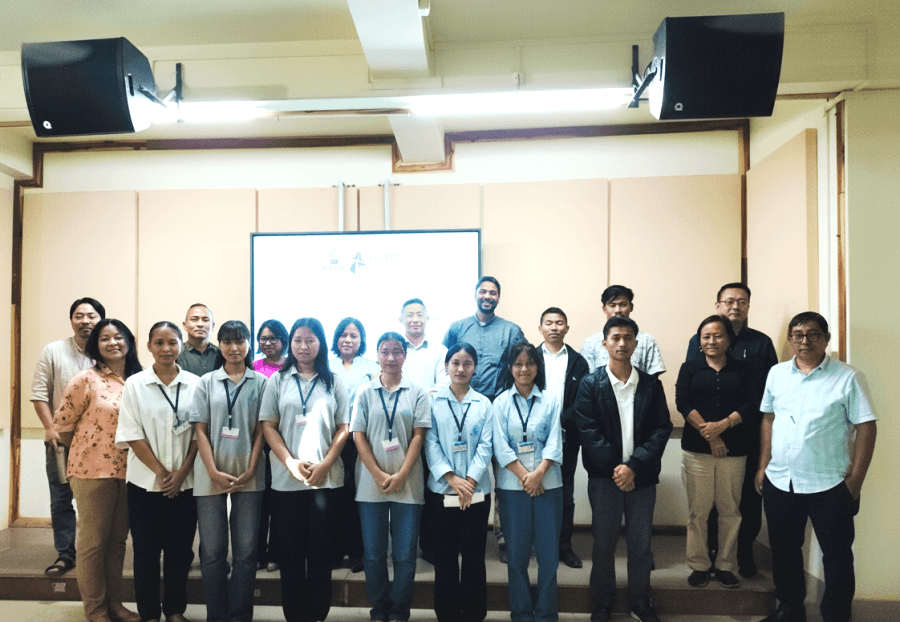MONDAY, NOVEMBER 17, 2025
- Home
- Human rights discourse from Global South discussed in Dimapur
Human rights discourse from Global South discussed in Dimapur
Discussion in Dimapur explores reimagining human rights from the Global South perspective, highlighting Western influence and contextual approaches.
Share

DIMAPUR — A discussion on “Reimagining human rights from Global South perspective” was organised by the Oxford Centre for Religion and Public Life (OCRPL) in collaboration with North East Christian University (NECU) recently.
According to an update, the panel discussion was led by Rev. Dr. Daniel Thejus, executive head of academics and operations, OCRPL, UK. The rapporteur for the session was Otoli V Yeptho, guest faculty, English Programme, NECU.
Speaking on the occasion, Rev. Dr. Thejus highlighted that in 1948, the Universal Declaration of Human Rights (UDHR) was adopted by the UN General Assembly, marking a major milestone. However, he pointed out that Human Rights gained significant traction only after World War II and were predominantly developed by the West, with the Global South countries inadequately represented in the drafting process.
He observed that the rights were heavily biased towards Western perspectives and that, in the name of Human Rights, Western values were imposed on the Global South, which nevertheless willingly adopted them.
Second, on the Universal Human Rights, Rev. Dr. Thejus stated that during the post-Enlightenment period, there was a reaction against the Church, faith, and religion, leading to the rise of reason and rationality. Individualism became central while faith and religion were devalued. Yet, Human Rights were applied universally, posing problems because the value system of the West differed greatly from that of the East. For the Global South, religion and faith held significant importance, and an individual’s identity was rooted in community.
Also read: Nagaland names Air India Express as official travel partner for Hornbill Festival 2025
Rural economy key to Nagaland’s future, says KG Kenye
He cited Immanuel Kant’s philosophy, “Act only according to the maxim whereby you can at the same time that it should become a Universal Law,” as being imposed upon the Global South. Stressing the significance of human rights, he quoted Amartya Sen, saying, “The recognition of human rights goes far beyond just having laws to protect them.” He noted that societies remain influenced by Western power and urged the need to form independent opinions and open discussions.
He also discussed human rights as a means of control, asserting that human rights gradually became a mechanism for the West to control the Global South — a polite form of domination. Despite the Global South having its own values and faith, the West continued to exert control through exploitation of resources, values, and identities.
Rev. Dr. Thejus emphasised that the idea of universal laws can be pluralised, made diverse, and context-specific. Instead of creating moral relativism, equality and Human Rights can be pluralised to reflect contextual meanings.
He further recommended the adoption of “Dialogue hermeneutics”, an approach that encourages understanding and interpretation through dialogue.
He stressed that this approach is about engaging in conversations to uncover meanings, foster mutual understanding, and build connections, recognising that meaning is co-created through interaction and context.

